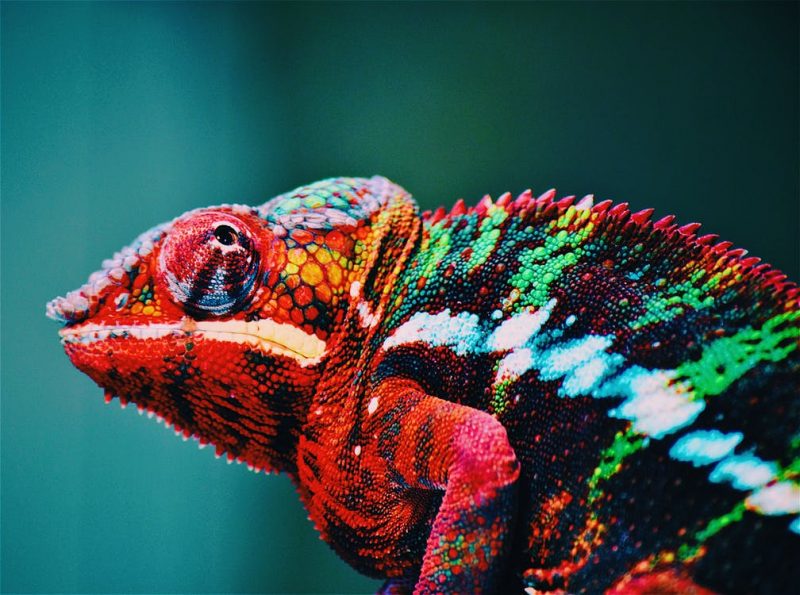All You Need to Know About a Career in Reptile Zoology
If you are a lover of reptiles – snakes, frogs, crocodiles, lizards, tortoises and the like – you may have considered pursuing a professional career in reptile zoology.
Certainly, reptile zoology is a field of study that can open the door to a multitude of career pathways. As an example, those who study reptile zoology may eventually proceed to work as a zookeeper, conservationist, herpetologist, veterinarian, veterinary technician, professional breeder, reptile store owner, teacher, reptile photographer, bio-medical researcher or become involved in leading local herpetological societies.
To put it another way, if you wish to work in one of the many disciplines reptile zoologists specialize in, then educating yourself professionally in this subject can be an effective way to make your passion for animals your chosen vocation.
You should take these factors into consideration:
Higher Education
For the majority of jobs which involve working with animals, a specialist education will be non-negotiable. Likewise, to establish a career within reptile zoology, you will first and foremost need to educate yourself in this subject at a comprehensive and professional level.
An easy starting point can be to explore a reptile zoologist course online, with self-paced studies making this option flexible around any lifestyle. With the added benefit of experienced tutors offering their support and guidance for the duration of the course, you will be able to access the essential educational underpinning reptile zoology from the comfort of your home.
Once you have begun studying this subject in greater detail, it would be equally beneficial to reach out and talk with a range of other professionals. This can include teachers, animal caretakers, professors and practicing reptile zoologists. The more opportunities you have to discuss reptile zoology with the experts, the more knowledge and insights you will be able to glean, supplementing your online and written studies.
Lastly, any professional will recommend reading and doing your own research on this subject. With numerous digital resources and books covering reptile zoology in extensive detail, there is ample opportunity to explore all the fundamental elements of reptiles: their biology, habitats, nutrition, behaviors, reproduction, conservation and care.
Gaining experience
Before proceeding to actively apply for roles, it will be advantageous to combine your written studies of reptile zoology with practical, hands-on experience. Volunteering is one such way in which you can enhance your expertise and develop a wide-ranging knowledge in preparation for the job application process.
Volunteering can involve working alongside animal charities, field researchers, biology lecturers or teachers, nature centers, clubs and museums. These volunteering opportunities can help you to establish a network of contacts within the industry and also enables you to get involved in a wide variety of interesting reptile zoology projects.
Through this combination of a comprehensive education in reptile zoology and depth of practical experience, you will be in the best position to proceed on to establishing a career in your chosen vocation.
Applying for a role
Once you then reach this stage of applying for roles, it’s vital to research the specific position you’re planning to pursue, in order to understand if any further qualifications are required. If you have both volunteered and taken the initiative to complete advanced studies – attaining a reptile zoologist certificate for example, before pursuing any of the necessary qualifications or degrees – you will nonetheless still be in a strong position to begin submitting for a professional position.
One option could be to apply to work at a zoo, which will definitely offer a wealth of exposure and experience of animal care. However, do not discount alternative, larger institutions, as these will equally offer diverse career opportunities and may better support you to specialize in reptile zoology in particular.
Regardless of the role you set your sights on, any reptile zoologist will tell you that it takes time, experience and continued commitment to achieve a long lasting and successful career in this field. Through the contacts you’ve made when studying and volunteering, you will have a number of ‘inroads’ to this industry which will be invaluable moving forwards.
Consider other options
With the wealth of careers related to reptile zoology, you won’t necessarily always be involved in fieldwork. Depending on the career path you choose, your role can vary between striking out into the natural world to research reptiles, to assuming a role within a laboratory, a university, a museum or even within a not-for-profit institution.
You will likewise have the choice to work in consultation roles, for example with government bodies, tour agencies, educational services, authors and media companies. There is also the opportunity to specialize within the discipline of reptile zoology itself; once you have gained experience within this industry, you may wish to practice in areas such as conservation, genetics or captive husbandry.
Whatever initially attracted you to reptile zoology and encouraged you to consider a career in this field, it’s important you realize the vast array of opportunities on offer. As we’ve outlined, a reptile zoologist course in Australia can be an invaluable stepping stone to exploring this industry and working to attain your dream role.





